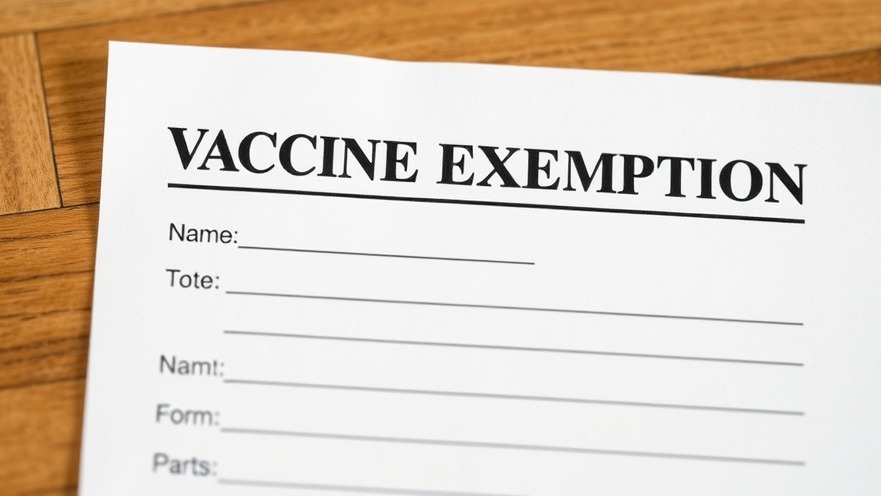
Texas Implements Streamlined Vaccine Exemption Process
In a significant shift aimed at improving access for parents, Texas has introduced a downloadable vaccine exemption form that allows children to opt out of state-required immunizations for school enrollment. This development, set in motion by state Rep. Lacey Hull’s House Bill 1586, simplifies a previously cumbersome process that required families to wait for physical forms to be mailed to them.
The Texas Department of State Health Services (DSHS) recently announced this update, which now enables parents to access and print the exemption form from the comfort of their homes. This reform, effective immediately, is designed to eliminate delays, decrease costs for taxpayers, and address privacy concerns that arose from the old method of requesting hard-copy forms.
Rebecca Hardy, executive director of Texans for Vaccine Choice, described the new law as “an empowering change” that facilitates parental rights. She emphasized that this change reflects the growing demand for such exemptions, noting that requests for vaccine exemption forms have more than doubled since 2018, soaring from 45,900 to over 93,000 in 2024.
Addressing the Rise in Vaccine Exemptions
There has been a noticeable increase in vaccine exemption requests in Texas, which could have varied implications for public health. In July alone, the state recorded 17,197 requests for exemption forms, marking a 36% rise compared to the previous year. This trend highlights a significant shift in parental attitudes towards immunization, especially in light of a recent measles outbreak that underscored the importance of herd immunity.
Data from the U.S. Centers for Disease Control and Prevention indicates that Texas is home to over 25,000 kindergartners not fully vaccinated against measles, positioning the state first nationwide for exemptions. This statistic is particularly concerning given that the measles vaccination rate among kindergartners in Texas has fallen to its lowest point since at least 2011.
The Importance of Vaccine Education
Alongside the exemption form, the DSHS also released a document outlining the benefits and risks associated with vaccines. However, this document is not included in the exemption form file itself, prompting advocates such as Terri Burke, executive director of The Immunization Partnership, to highlight the necessity for parents to have access to this crucial information before making decisions on exemptions. The provision of educational materials may help parents make informed decisions regarding their children's health.
Can The New Law Foster a Balanced Discussion?
While the new downloadable exemption form makes opting out easier, it invites a broader discussion about vaccinations and public health. Proponents of vaccinations argue that maintaining high immunization rates is essential to protecting communities, particularly vulnerable populations, while opponents often cite personal and religious freedoms as reasons for opting out.
The ongoing debate often centers around the challenges of achieving herd immunity, especially in light of the recent measles outbreak that claimed two young lives in West Texas. As public health officials strive for vaccination rates above 95% to ensure community protection, the new law could inadvertently encourage a larger portion of the population to pursue vaccines or exemptions.
Looking Ahead: Implications for Texas Health Policy
This legislative change reflects a growing trend towards individual autonomy in health decisions, echoing sentiments nationwide. As Texas grapples with the implications of rising exemption rates, health officials and policymakers will need to find a way to balance parental rights with the community's health needs to create a more informed public.
The accessibility of the exemption form could lead to greater awareness about vaccinations while also prompting increased dialogue among parents. Education will remain a critical element in this discussion, helping families weigh the risks of vaccine hesitancy against the benefits of immunization.
Take Part in the Discussion
As Texas navigates these changes, it will be important for residents to engage with local healthcare providers, educational institutions, and policymakers about vaccination practices and public health. Empowering dialogue in communities across the state can help foster informed decisions about children's health, ensuring everyone has access to the critical information needed to make those choices.
 Add Element
Add Element  Add Row
Add Row 



Write A Comment